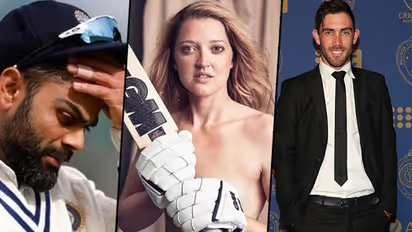Virat Kohli to Sarah Taylor to Glenn Maxwell: 7 cricketers who faced mental health issues
Published : Sep 23, 2021, 05:29 PM IST
A few years ago, when Australian players like Glenn Maxwell, Nic Pucovski and Nic Maddinson took a break from cricket because of their mental health issues, it became a hot topic in the media. Here are 7 players that have opened up about their mental health issues
Stay on top of all the latest Sports News, including Cricket News, Football News, WWE News, and updates from Other Sports around the world. Get live scores, match highlights, player stats, and expert analysis of every major tournament. Download the Asianet News Official App to never miss a sporting moment and stay connected to the action anytime, anywhere.
